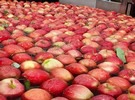With British Columbia’s cherry season not too far around the corner, B.C. growers and shippers are concerned about this season’s supply of both foreign and domestic workers.
“Foreign workers are starting to come but they’re sort of dribbling in. They’re not coming in at the pace that’s needed. There have been delays,” says Bryan Key, category director with Consolidated Fruit Packers Ltd. based in Kelowna, B.C. Some estimates put B.C. as being home to 1,500 temporary foreign workers seasonally.
 While workers in B.C.’s agriculture industry come largely from Mexico and Jamaica, Key says the delays seem to be largely due to paperwork and COVID-19 related holdups. “It’s just all taking longer than it normally would to put this together,” he says.
While workers in B.C.’s agriculture industry come largely from Mexico and Jamaica, Key says the delays seem to be largely due to paperwork and COVID-19 related holdups. “It’s just all taking longer than it normally would to put this together,” he says.
2020’s cherry season
The concern comes especially after growers saw what happened with last year’s cherry season, one that’s been described as devastating due to low yields. “And even with low yields, we were short people to pick the fruit in time,” says Key. “The worry now is if we have the same labor problem as last year and a normal crop, that would much more devastating. In some instances, growers had only 30 percent of their crop. What if we have 100 or 110 percent of what is normal?”
It's particularly concerning on a high-value crop such as cherries. “If we have 200-400 bins a day and we can only pack 80, that’s one thing on apples because they can keep. With cherries, they need to be gone,” says Key.
At the same time, CFP’s packing house in Osoyoos, a smaller more rural region, saw its own labor shortages. “We really struggled last year to get local people and did everything we could to figure out how to entice people to work for us. But it was very very difficult. We’re trying to get some summer students on board and we’re looking at every angle but we don’t have a big draw,” says Key.
Domestic shortage too Along with foreign workers, B.C. growers often use two other types of labor—domestic temporary labor from other Canadian provinces such as Quebec—and international travelers. “Unless things turn around—which I don’t see happening as fast as we would like—we’re going to have fewer backpackers coming in and that’s worrisome,” he adds.
Along with foreign workers, B.C. growers often use two other types of labor—domestic temporary labor from other Canadian provinces such as Quebec—and international travelers. “Unless things turn around—which I don’t see happening as fast as we would like—we’re going to have fewer backpackers coming in and that’s worrisome,” he adds.
Not being able to get fruit off the trees is one concern. But overall quality of the fruit is another. “I know a lot of farmers didn’t get the labor they needed to do tasks around maintenance in the orchards such as pruning, along with picking apples. And if the fruit is picked late, then the fruit is overmature,” says Key. “We’ve seen from some that the fruit isn’t as strong. We’ve had a higher cull rate because of that and you can tell it all started with not being able to keep up and pick at the right time.”
For more information:
Bryan Key
Consolidated Fruit Packers Ltd.
Tel: +1 (250) 868-1400
bryank@cfp-ltd.ca
https://cfp-ltd.ca/
